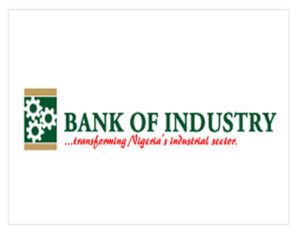
Senate passes Amendment to Finance Act, increases Banks’ windfall levy to 70%
…Windfall tax on FX gains will significantly reduce banks’ loan credit, profits – Moody’s
The Nigerian Senate has approved an amendment to the 2023 Finance Act, raising the windfall levy on banks’ foreign exchange revaluation gains from the initially proposed 50 per cent to 70 per cent.
Senator Sani Musa, Chair of the Senate Committee on Finance, presented the report and detailed that the new levy would apply to 70 percent of profits from exchange transactions, he said, “the levy shall be 70 percent of the realised profits of all exchange transactions from banks.”
Any bank that fails to pay the windfall profit levy to the service, and has not executed the deferred payment agreement by 31st December 2024 shall be liable to pay a windfall levy withheld in addition to a fine of 10 percent of the levy withheld or not remitted per annum and an interest at the prevailing Central Bank of Nigeria (CBN) minimum discount rate”
The Senate also changed the start date of the amended act from January 1, 2023, to the implementation date of the new foreign exchange policy, following objections about the amendment’s retroactive impact.
Additionally, the application period for the windfall levy was extended from the end of 2023 to cover all profits from foreign exchange transactions starting from the new policy’s enactment through the 2025 financial year.
Senate President, Ahmed Lawan, after a thorough review, instructed Majority Leader Senator Opeyemi Bamidele to move for the third reading, which was subsequently approved.
Lawan stated, “Distinguished colleagues, a bill for act to amend the finance act 2023 to impose and charge windfall levy on banks and to provide for the administration of the levy and matters related there to, 2024, third reading taken and passed.”
The Central Bank of Nigeria introduced a new foreign exchange policy on June 14, 2023, aimed at unifying the forex market.
The Senate also passed an amendment to the 2024 Appropriation Act, adding N6.2 trillion to the budget to fund recurrent expenditures, including the new N70,000 minimum wage and renewed hope for infrastructure projects.
However, President Bola Tinubu had earlier requested the Senate to amend the 2023 Finance Act to introduce a one-time windfall tax on banks’ foreign exchange revaluation profits for 2023 financial year. The amendment stipulates penalties for non-compliance, including payment of the withheld tax along with a 10 percent penalty and interest at the Central Bank of Nigeria’s (CBN) minimum discount rate, interest, and possible imprisonment for key officials.
The amendment has prompted debate over its timing and legality. KPMG Nigeria criticised the 50 percent tax for potentially leading to legal disputes due to Nigeria’s stance against retroactive taxes. PwC Nigeria warned that the windfall tax’s unpredictability could deter investment.
In addition, a prominent lawyer, Dr. Olisa Agbakoba, criticised the amendment as an ill-thought-out policy and beyond the National Assembly’s scope, suggesting it could ultimately burden bank customers.
Meanwhile, according to new report by Moody’s disclose that the windfall levy on Nigerian banks’ foreign exchange revaluation gains is credit negative for banks,
The global rating agency said that the tax will significantly reduce the profits available to banks for problem-loan provisioning and transfers to retained earnings, which form part of regulatory capital, both credit negative for the sector.
“The windfall tax will have a particularly negative effect on banks whose capital adequacy is close to regulatory thresholds. The tax follows record profits declared by banks in 2023, largely because of foreign-currency revaluation gains related to the naira’s massive devaluation of 37 percent in June 2023,” the report said.
It said the tax is in line with the Central Bank of Nigeria (CBN)’s September 2023 policy prohibiting banks from using foreign-currency-related profits for operational expenses and dividends.
“Eight of the nine Nigerian banks we rate reported in excess of N3.5 trillion in aggregate pretax profits in 2023 versus N1.1 trillion in 2022, and we estimate that over a third of the profits were from foreign-currency revaluation and trading gains.
“It is unclear, however, what proportion of the revaluation gains will be taxed, given the differences between trading and revaluation gains. Additionally, the 2023 revaluation gains include unrealised gains, which may affect how the tax is applied, particularly as the government has not been clear how the 50 percent windfall tax will be achieved,” the report added.




